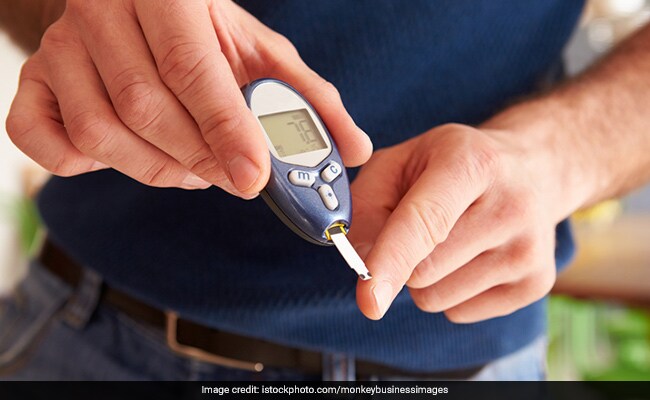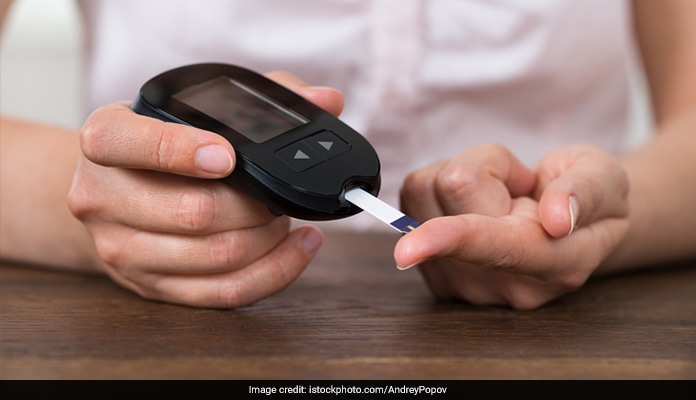If a diabetic gets dengue, the infection can affect the vision, cause brain inflammation, make the body go into septic shock, or lead to multi-organ failure. Read on for more information.

Diabetic people need to be cautious if they have a fever that doesn't subside.
HIGHLIGHTS
- Dengue causes fever and increases metabolic rate
- If a diabetic gets dengue, the infection can affect the vision
- Dengue is a mosquito-borne viral disease
Mosquito-borne diseases like dengue and chikungunya are on the rise making it very important for diabetics to take caution. According to statistics, mosquitoes infect about 300 to 500 million people and cause 1 million deaths every year around the world. "Dengue causes fever and increases metabolic rate, which can lead to a rise in fluctuation in blood sugar levels. If it is not monitored properly, there is high risk of such patients developing serious complications," said Dr Randeep Guleria, professor of medicine at AIIMS to The Times of India. He said heart patients take blood-thinning medicines, which may have to be stopped to check bleeding due to dengue infection.
Also Read: Early Arrival Of Dengue: Symptoms, Risks And Prevention

Diabetic people need to be cautious if they have prolonged fever.
Photo Credit: iStock
What are the most commonly associated symptoms that could be associated with the onset of Dengue?
- Severe headache
- Pain behind the eyes
- Nausea and vomiting
- Swollen glands
- Muscle and joint pain
- Skin rash
- High fever reaching 40C/ 104F
Why are some people more susceptible to Dengue?
- They live in a high-risk zone which has dingy, unclean surroundings with stagnant water that encourages mosquito breeding.
- Some of them have been infected with dengue before
- They have low immunity
- Their platelet count is low
Make a diagnosis assessing:
- The temperature
- Associated symptoms such as nausea and vomiting Rash and general pain
The common tests for dengue
Complete Blood Count
ELISA test for dengue NS1 Ag
PCR for detecting viral DNA
Serum IgG and IgM test
Suggested Treatment
- Please seek medical advice immediately if common symptoms persist
- Drink plenty of fluids
- Symptomatic relief can be sought using NSAIDs (Non-steroidal anti-inflammatory drugs) such as paracetamol
- Do not take aspirin or ibuprofen since they can increase the risk of bleeding
- Follow instructions of medical practitioners diligently
If Dengue fever progresses to dengue shock syndrome, look out for these symptoms and visit your nearest hospital immediately:
- Severe pain in the abdomen
- Myalgia
- Fluid accumulation in the liver
- Hemorrhages
- Nausea
- Fluid accumulation in the chest
- Headache
How to prevent dengue
- Make sure all egg-laying habitats of mosquitoes, such as open and stagnant water sources are cleaned up.
- If there are any open water sources you cannot eliminate, cover them and apply appropriate insecticides.
- Use protections such as window screens, long-sleeved clothes, insecticide-treated materials, coils, vaporizers and repellant creams to avoid being bitten by mosquitoes.
- A person can suffer from dengue a second time if the viral strain is different from the initial infection.
So, ensure adequate protection.
DoctorNDTV is the one stop site for all your health needs providing the most credible health information, health news and tips with expert advice on healthy living, diet plans, informative videos etc. You can get the most relevant and accurate info you need about health problems like diabetes, cancer, pregnancy, HIV and AIDS, weight loss and many other lifestyle diseases. We have a panel of over 350 experts who help us develop content by giving their valuable inputs and bringing to us the latest in the world of healthcare.














